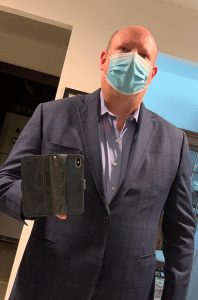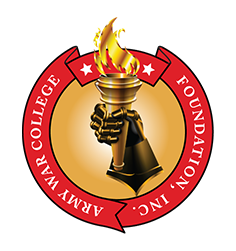Will Steuer, DDE ‘14
I am the Management Counselor for the U.S. Mission to the United Arab Emirates. I am one of the handful of State Department civilian officers who were my USAWC class and I have traded my tie in for a mask! We have over 1,000 official U.S. government diplomatic personnel and family members in the country, and an additional 400 local staff. Our COVID-19 specific briefs are very broad, including working with host country counterparts on COVID issues, repatriating American citizens, and maintaining the welfare of our own personnel. Our last passenger flights departed on March 25th and now flights are only repatriation and cargo flights. Teleworking and restricted movements in cities have been challenges. Most of an embassy’s emergency communication strategies center around relocating operations to another facility in the city or country, or to an embassy in a neighboring country. At worst, you leave your core team in the country and send the majority of staff and families to work in Washington. But what do you do when the entire world is in some sort of lockdown and you don’t know how long 98% of your staff will be telecommuting? We learn different ways to adapt every day. We still have diplomatic protocols to follow but the host country government and other foreign missions are also feeling the frustration of telecommuting. Mutual adversity has always been a great equalizer. We began tracking this in January and began feeling effects late that month on the ground in February. There was an option for Embassy and Consulate General staff from all agencies to depart for the United States. Only a very small number took the offer, most preferring to stay here and carry out their duties. Our levels of isolation are situational. Some staff arrived on the last passenger flights and had to self-quarantine at home for 14 days. Some diplomatic staff and family members who were medically at risk either returned to work in the U.S. or self-isolated to work from home. Host country guidance constantly evolves as they try to flatten their curve. Part of my job has been to trace and verify that guidance and then inform our official community. That also has to be balanced with official CDC guidance. It didn’t take long to go from “wash your hands” to “here’s your mask and by the way, we’re stopping passenger flights for this week, oh now it’s indefinitely.” There are limited movement plans in some major cities, some more restrictive than others. If you don’t have emergency business, you stay home. To help beat the isolation, we have established specialized Whatsapp groups for children, singles, homeschoolers, etc. There was a virtual Quiz night for singles yesterday. Our students have been on long distance learning since the beginning of March. They recently learned that schools will not re-open this semester so that was a huge disappointment, but not unexpected. They had the easiest transition to communicating with their friends via technology and showed their parents. Our Community Liaison Office worked with the drivers and dropped off Easter gift bags to the children in time for the weekend to help give them a boost. It’s worth noting that we have a large contingent of Title 10 and 22 in the country. They have been a great partner on the Embassy’s Inter-agency Country Team and other various committees since the beginning.
Mr. William ‘Will’ Steuer
Distance Class of 2014

